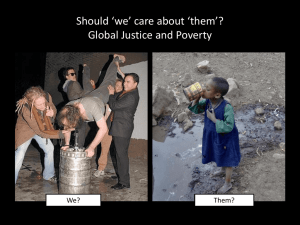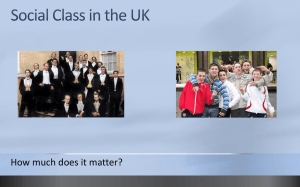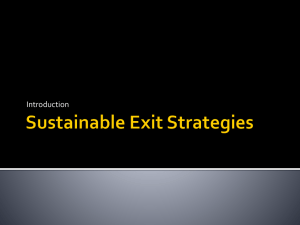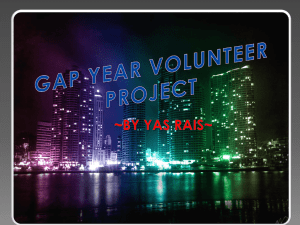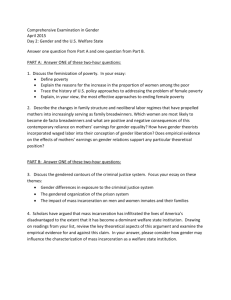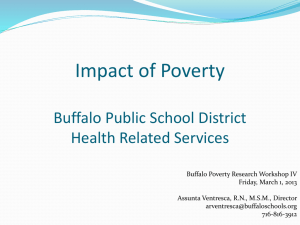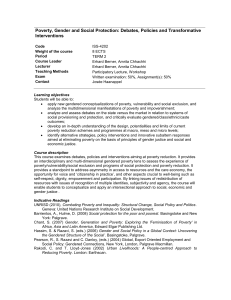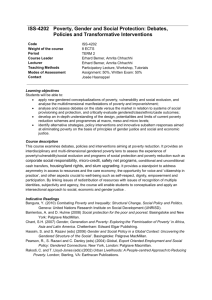Re-conceptualising poverty
advertisement
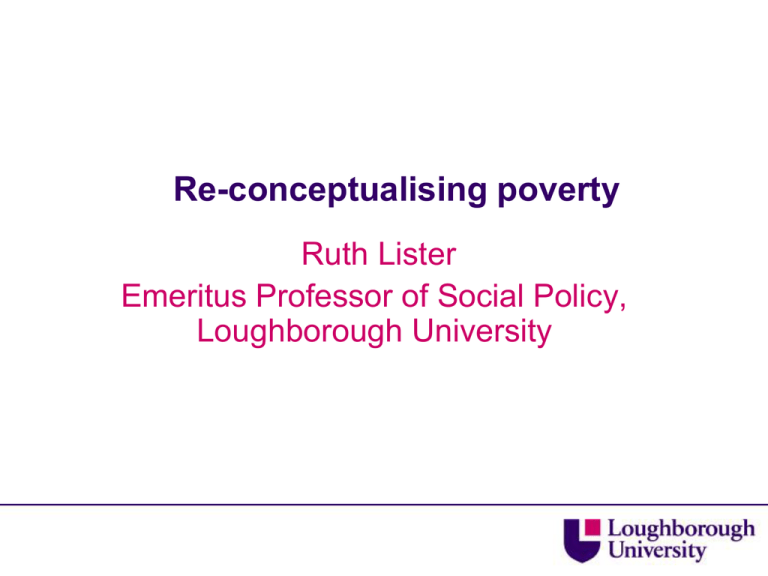
Re-conceptualising poverty Ruth Lister Emeritus Professor of Social Policy, Loughborough University Outline Framework: concepts, definitions & measurements Structure & agency Discourses Politics & policy Concepts, definitions & measures Conceptualisation of poverty Importance of conceptual level. Relational as well as material. Grounded in experience: learning from participatory poverty research Wider social scientific framework including recognition theory. Structure & agency Structural constraints on agency. Structural inequalities & social divisions. Gender: causes, effects & experience all gendered. Focus on individual rather than household: hidden poverty. Acknowledge agency without blaming or romanticising. Forms of agency Getting by Livelihoods framework: unequally distributed resources or assets. Active process of juggling & piecing together. Women carry the main strain. Can be used to deny reality of poverty. Importance of social resources/networks. Getting: back at & out of poverty Getting back at: ‘everyday resistance’ (Scott). Social security fraud? Getting out: poverty dynamics. Macro quantitative research needs to be complemented with micro qualitative. Role of children’s agency in supporting parents working to get out of poverty. Role of ‘gendered moral rationalities’ (Duncan & Edwards). Getting organised The significance of identity: ontological & categorical (Taylor). Lack of identification with ‘poor’ label is barrier to collective action. Alternative categorical identities as basis for collective action. Material constraints on getting organised. Discourses ‘Othering’: dualistic process of differentiation & demarcation, through which social distance established & maintained. A discursive practice, which shapes how the non-poor think, talk about & act towards ‘the poor’. Stigmatising language including the ‘p’ word. ‘Sympathetic Othering’. Stigma, shame & humiliation. Discourses of resistance The need for respect. Human rights & citizenship: respect for human dignity + interdependence of civil, political, socio-economic & cultural rights. Voice & power: genuine participation. Politics & policy A politics of recognition&respect as well as redistribution. The ‘what’ of policy: an income sufficient to live in a manner compatible with human dignity. The ‘how’ of policy: respect for dignity of people in poverty in delivery of public services + voice with influence.




